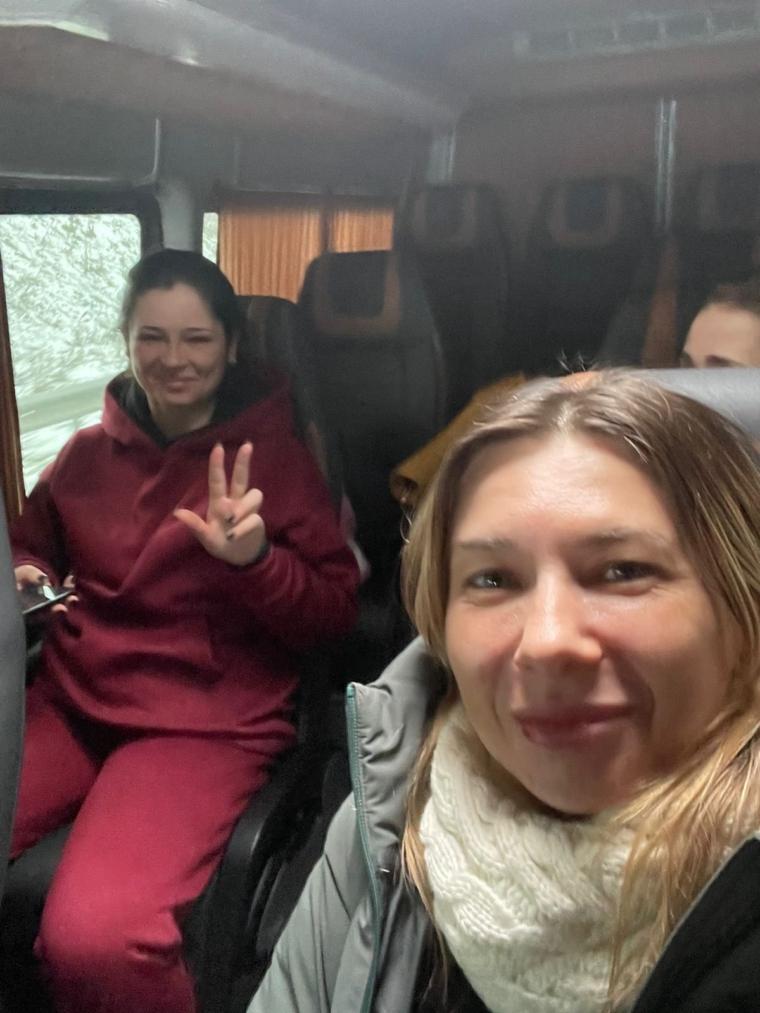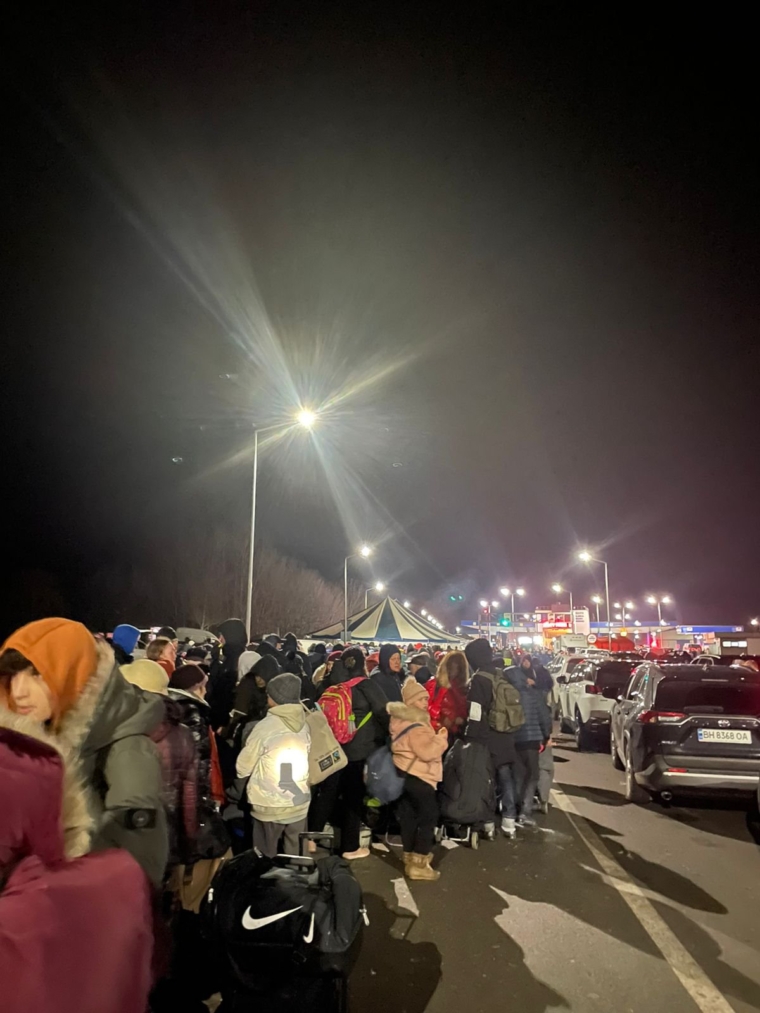Surrogates in Ukraine carrying babies for foreign couples are reluctant to flee from their home country despite the war leaving biological parents anxious about the safety of their children.
Ukraine is the second most popular surrogacy destination for foreign couples after the US, and it is estimated that there are currently 800 surrogates pregnant with children to foreigners.
Julia Osiyevska, director of the New Hope surrogacy agency in Ukraine, told i she cannot leave the country despite the war as she cannot abandon the surrogates and intended parents who are relying on her.
She said it was hard to balance the fears and needs of surrogates and the people they are carrying children for.
“I understand both sides and know that intended parents are scared and frightened as the surrogates are carrying their child,” she said.
“But we treat the surrogates and the intended parents equally and a surrogate has the right to say if she does not want to move away from Ukraine.
“Surrogates are not hostages or slaves; many of them are too afraid to move to a different place even though there is a war in Ukraine and it is a terribly difficult situation for them too.”
Speaking to i from Ukraine, Ms Osiyevska explained that New Hope is a small surrogacy agency and is currently supporting nine pregnant surrogates.
It works with foreign couples including those from the UK, the US and Australia, and she says it is a fraught time for intended parents and the surrogates carrying their babies.
“Lives are ruined for everyone,” she said. “When the war happened, our lives completely changed. Everyone warned Ukraine that Russia might invade but we did not want to believe it.”
More from World
As well as the nine surrogates who are pregnant, New Hope had other surrogates signed up who had started the surrogacy process and began taking medication ready for embryo transfer.
However, she said their treatment has been stopped as all surrogacy programmes are cancelled and their priority is to support the surrogates who are pregnant and their intended parents.
Ms Osiyevska spent 19 hours on a bus with five pregnant surrogates and their children – 16 people in total – to transport them to safety from Ukraine and over the border to Moldova.
However, she says some surrogates don’t want to leave Ukraine as the prospect of moving to a different country terrifies them, so she has ensured they are all in safe places in Ukraine.

“We had a situation where one surrogate refused at the last minute to go to Moldova,” she said. “But she had every right to do this. Another surrogate who we took to Moldova, we had to bring back to Ukraine a few days later.
“There are another two surrogates in Moldova who want to come back to Ukraine as they are finding it difficult being in another country and far away from their family.”
She added: “There are many surrogates who don’t want to leave Ukraine despite the danger of war. Men are banned from leaving Ukraine so they would have to go without them and take their own children.
“Living in a different place such as Moldova is also more expensive and many have no means of supporting themselves without their husbands.
“There is also the mentality of it being very hard to leave Ukraine and be away from their family in a different country and some prefer being moved to a safer part of Ukraine instead.”
Ms Osiyevska said one surrogate is due to give birth in a couple of weeks, and after that there is a birth due every month. She has arranged for antenatal care to be provided in Moldova and then the surrogates will be moved back to a safer part of western Ukraine for the birth.
“I respect and understand why the intended parents want the surrogates to move out of Ukraine, but I can also appreciate the worries of the surrogates. It is about balancing both their needs and supporting everyone,” she added

Surrogacy in Ukraine costs couples about $50,000 and surrogates are paid for carrying a baby for someone else. Only opposite-sex couples are permitted to access surrogacy in the country.
In the UK, surrogacy can only be done altruistically, with surrogates only allowed to be paid expenses. The legal situation is also more complex in Britain, as a surrogate is automatically afforded legal rights even where they have no biological connection to a child.
Ms Osiyevska told i that initially, she didn’t like the idea of surrogacy, but when she learned more about it, she decided it was an amazing thing for a woman to do for someone else.
She said New Hope was a small agency providing a personalised service and was “not a baby factory.”
“I used to work in adoption for the Ukrainian government and in the beginning, I did not like the idea of surrogacy,” she said. “I wrongly thought it was like selling a child and like human trafficking.
“But I realised it is not her child; it is an embryo created by the parents and she is just the carrier. She is helping to grow someone’s child in her belly and that is such a great thing to do.
“After hearing so many stories from parents about their failed IVF attempts before surrogacy, you realise that surrogates help build families.
“They are paid, but it is not selling a baby. They don’t bond with the child as they know from the start that it is not their baby. They are paid for the service they are providing by carrying the baby and in return, they can spend this money on their own family.”
On Sunday, UK Home Secretary Priti Patel confirmed that Ukrainian surrogates would be able to enter the country on a three-year visa.


Maurice Saatchi: I used to adore capitalism – then I had lunch with Margaret Thatcher